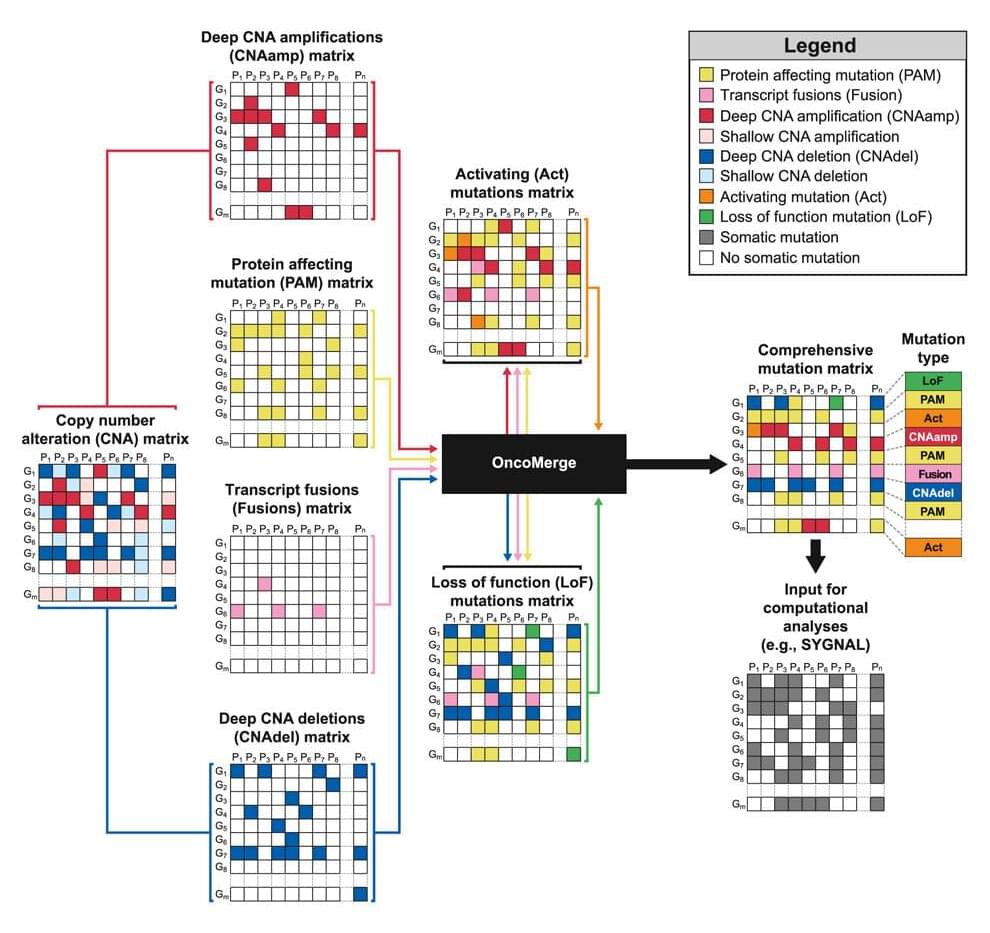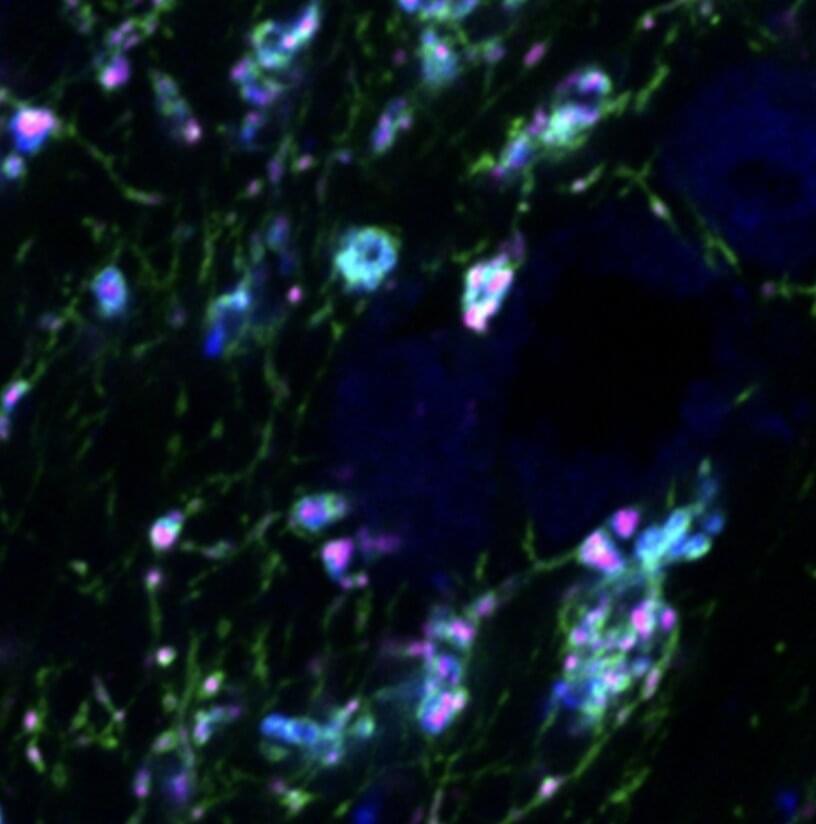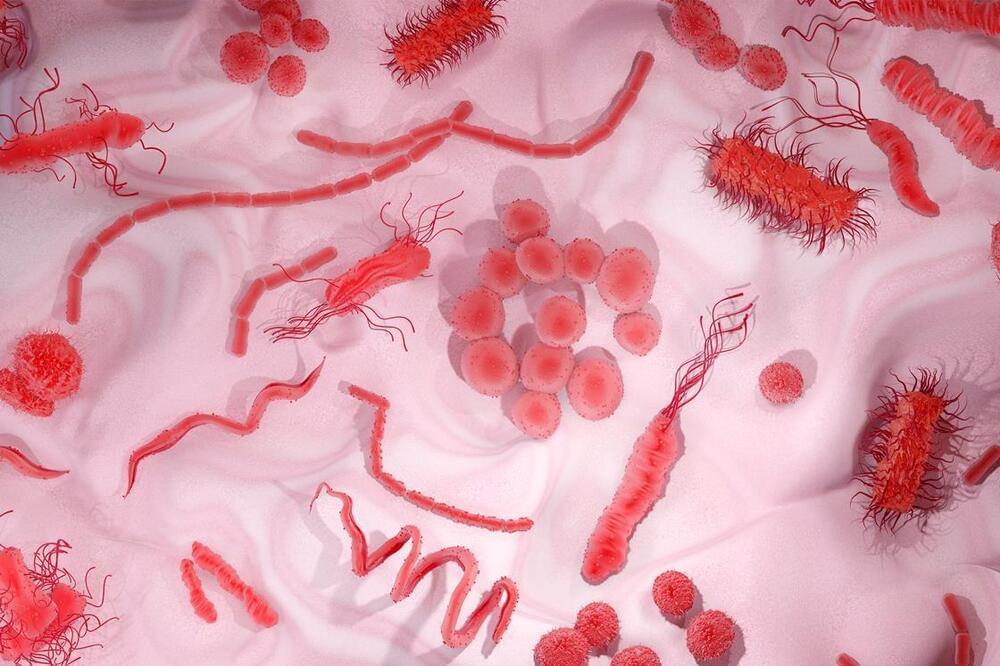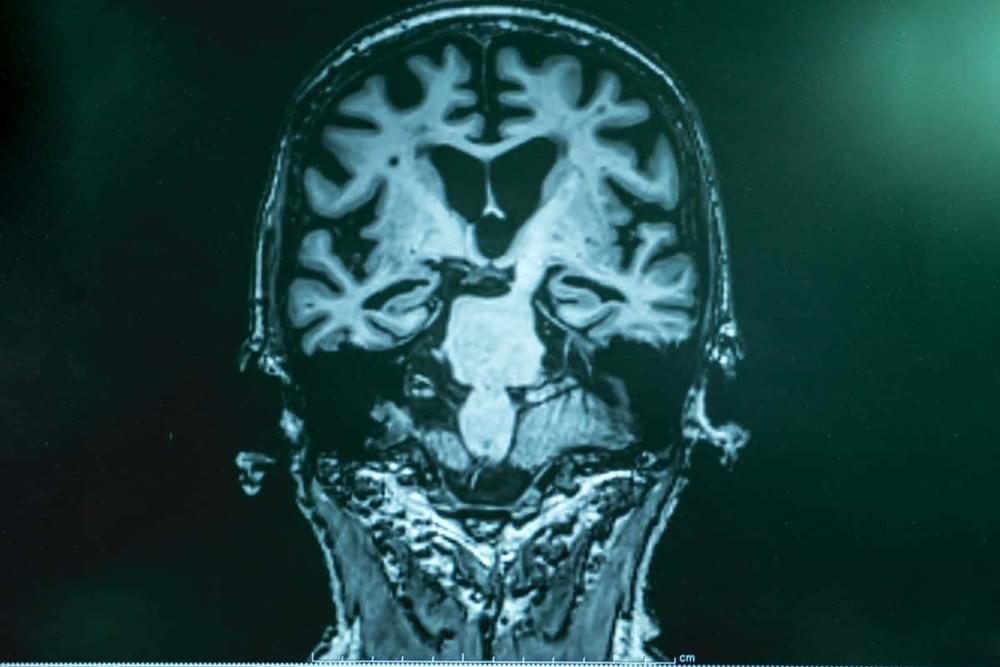Page 2172
Apr 4, 2023
Scientists Find Antibiotic-Free Way to Treat Drug-Resistant Infections
Posted by Genevieve Klien in category: biotech/medical
Scientists have found an antibiotic-free way of treating ‘golden staph’ skin infections that are the scourge of some cancer patients, and a threat to hospital-goers everywhere.
The lab study from researchers at the University of Copenhagen utilized an artificial version of an enzyme that’s naturally produced by bacteriophages (viruses that infect bacteria), and used it to eradicate Staphylococcus aureus, or golden staph, in biopsy samples from people with skin lymphoma.
“To people who are severely ill with skin lymphoma, staphylococci can be a huge, sometimes insoluble problem, as many are infected with a type of Staphylococcus aureus that is resistant to antibiotics,” explains immunologist Niels Ødum of the University of Copenhagen.
NASA has picked the four astronauts who will fly to the moon next year—and this lineup looks different than the Apollo crews did.
Apr 4, 2023
Biological markers identified as powerful predictors of prostate cancer relapse following radiotherapy
Posted by Shubham Ghosh Roy in category: biotech/medical
Two key proteins linked to cell division can reliably predict disease recurrence in prostate cancer after radiotherapy treatment, according to new research.
Using an inexpensive and widely available technique in the clinic, the researchers evaluated a range of proteins in prostate tumor biopsies and determined that the phosphatase and tensin homolog (PTEN) and geminin proteins are key markers associated with cancer relapse after radiotherapy.
Based on their results, the team at The Institute of Cancer Research, London, reported that patients with tumors showing loss of PTEN were almost three times more likely to experience recurrence than those with ‘normal’ PTEN. Similarly, the data showed a 70 percent increase in the likelihood of experiencing recurrence in patients with tumors that had a 10 percent increase in geminin.
Apr 4, 2023
Starship launches 4/10!!! Plus, why SpaceX Mars Colonists will be the richest humans alive!
Posted by Jose Ruben Rodriguez Fuentes in category: space travel

The FAA has Starship on their launch calendar! The biggest step towards colonizing Mars is perhaps a week away. But the question remains: why are humans going to make the choice to spend the rest of their lives on such a hostile planet? Well, for the main reasons that humans do anything.
Money.
#space #spacex #nasa.
Please support my channel! EARLY VIDEO RELEASES, DISCORD MEMBERSHIP AND EXCLUSIVE CONTENT PLUS 15% OFF MERCH!
https://www.patreon.com/AngryAstronaut.
https://www.paypal.com/paypalme/AngryAstro.
Apr 4, 2023
Genetic analysis tool developed to improve cancer modeling
Posted by Shubham Ghosh Roy in categories: bioengineering, biotech/medical, genetics, health
Lifestyle behaviors such as eating well and exercising can be significant factors in one’s overall health. But the risk of developing cancer is predominantly at the whim of an individual’s genetics.
Our bodies are constantly making copies of our genes to produce new cells. However, there are occasional mistakes in those copies, a phenomenon geneticists call mutation. In some cases, these mistakes can alter proteins, fuse genes and change how much a gene gets copied, ultimately impacting a person’s risk of developing cancer. Scientists can better understand the impact of mutations by developing predictive models for tumor activity.
Christopher Plaisier, an assistant professor of biomedical engineering in the Ira A. Fulton Schools of Engineering at Arizona State University, is developing a software tool called OncoMerge that uses genetic data to improve cancer modeling technology.
Apr 4, 2023
Serotonin gates the transfer of visual information from the eyes to the thalamus
Posted by Shubham Ghosh Roy in categories: biotech/medical, neuroscience
Humans are known to perceive the environment around them differently based on the situation they are in and their own feelings and sensations. Internal states, such as fear, arousal or hunger can thus affect the ways in which sensory information is processed and registered by the brain.
Researchers at Beth Israel Deaconess Medical Center, Boston Children’s Hospital, and Peking University have recently carried out a study investigating the possible effects of serotonin, a neurotransmitter known to regulate sleep, mood, sexual desire, and other inner states, in the processing of visual information. Their findings, published in Neuron, suggest that serotonergic neurons in the brainstem (i.e., the central trunk of the mammalian brain) gate the transfer of visual information from the eyes to the thalamus, an egg-shaped area of the brain.
“Internal states are known to affect sensory perception and processing, but this was generally thought to occur in the cortex or thalamus,” Chinfei Chen, one of the researchers who carried out the study, told Medical Xpress. “One of our previous studies revealed that arousal can suppress certain visual information channels at an earlier stage of the visual pathway–at the connection between the mouse retina and the thalamus, before the information even reaches the brain. This form of ‘filtering’ of information suggests a very efficient means of processing only relevant information.”
Apr 4, 2023
Wired-up symbiotic multi-organism can turn sunlight and air into valuable proteins
Posted by Jose Ruben Rodriguez Fuentes in categories: biotech/medical, chemistry, food
Apr 4, 2023
Scientists find deepest fish ever recorded at 8,300 metres underwater near Japan
Posted by Shailesh Prasad in category: futurism
Footage of unknown snailfish captured by researchers from Western Australia and Tokyo in Izu-Ogasawara trench.
Apr 4, 2023
A new mitochondrial theory of Alzheimer’s deserves serious attention
Posted by Shailesh Prasad in categories: biotech/medical, life extension, neuroscience
A “grand unifying theory” of brain ageing suggests malfunctioning mitochondria might be to blame for Alzheimer’s and other brain conditions. And this new avenue of exploration already has some potential therapies at the ready.

















